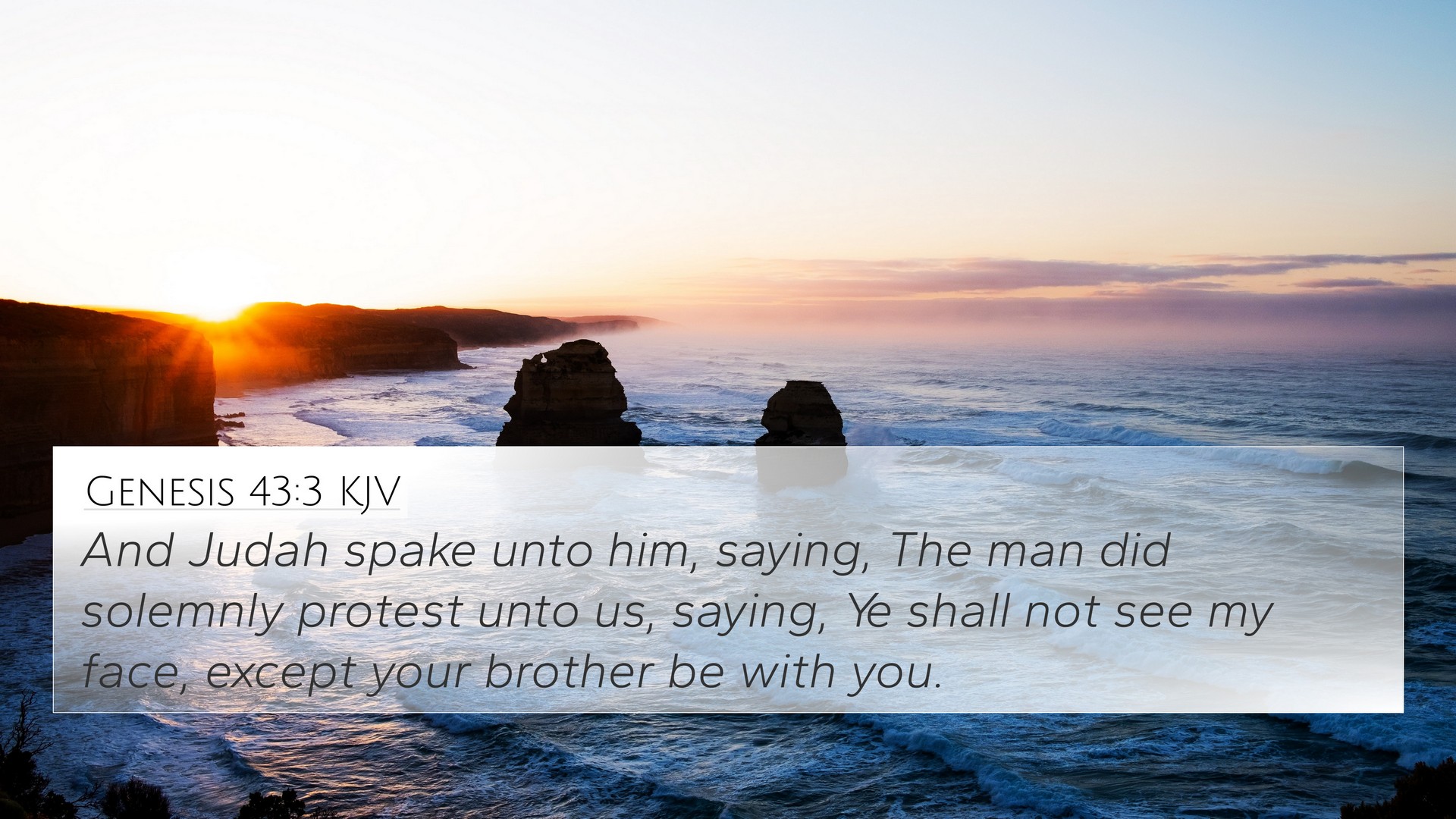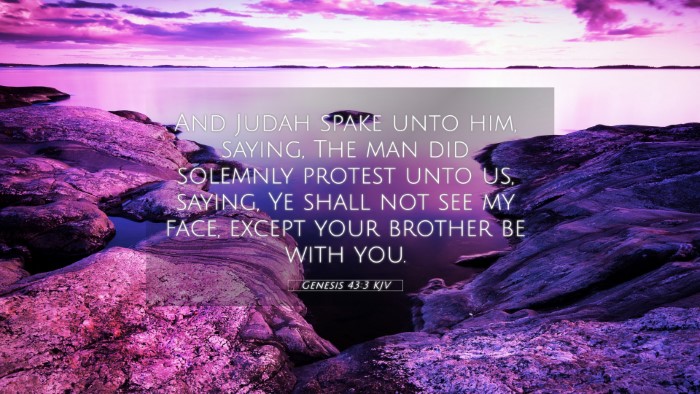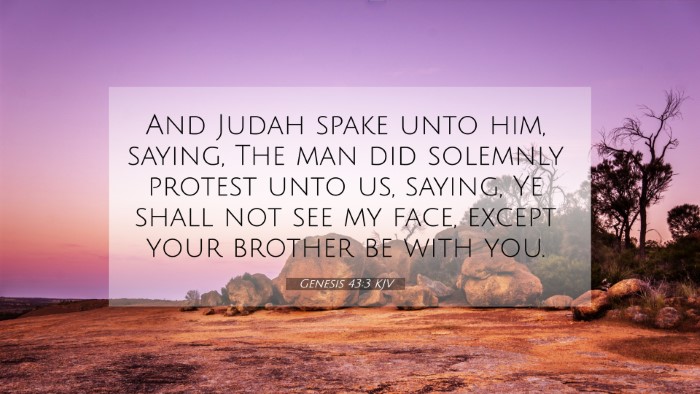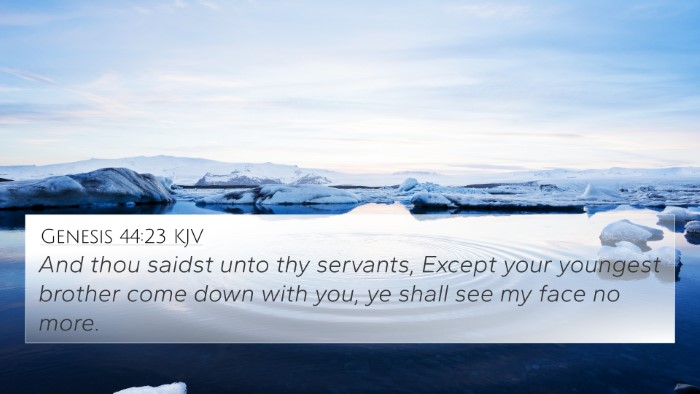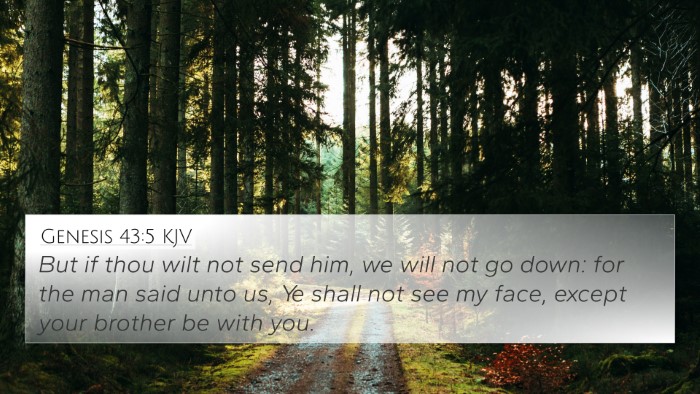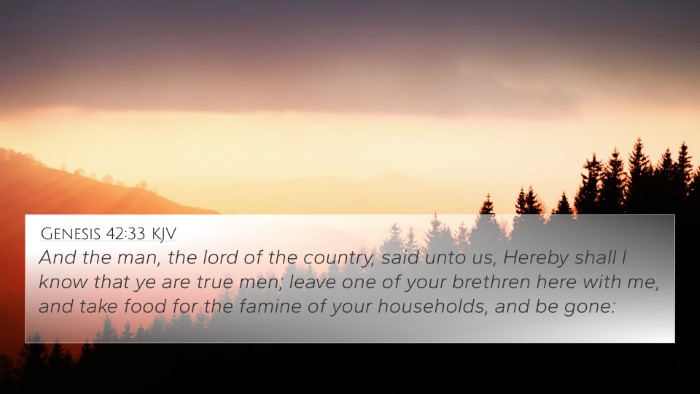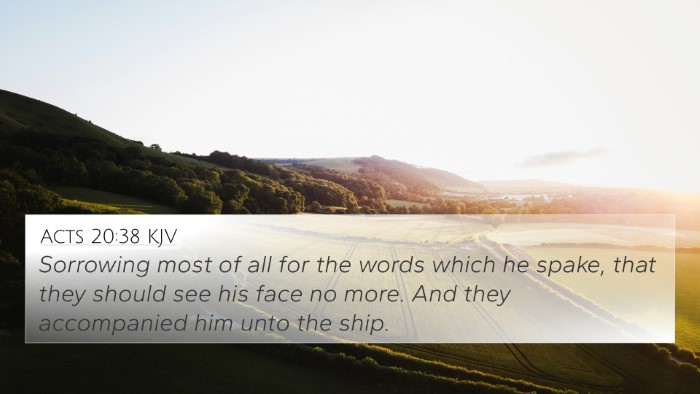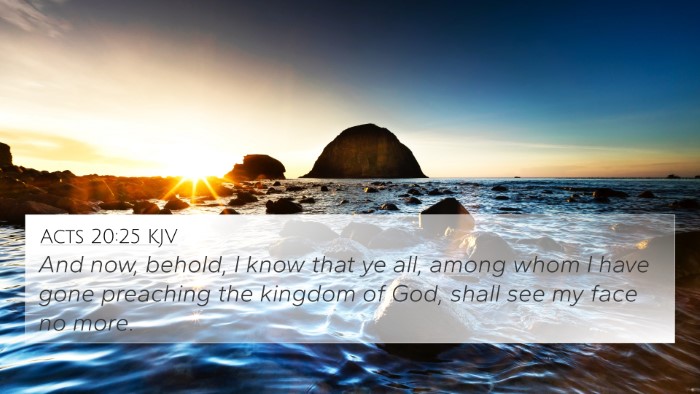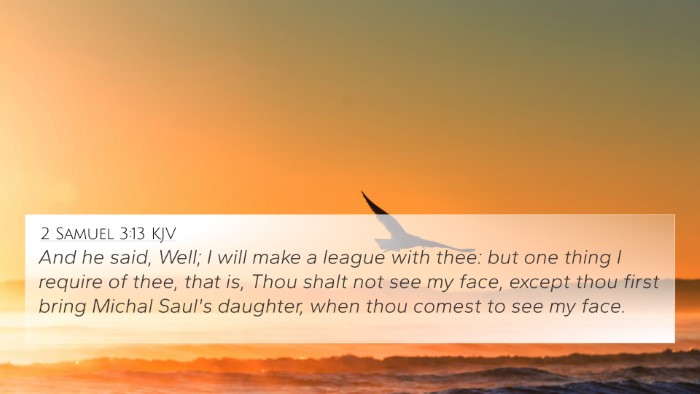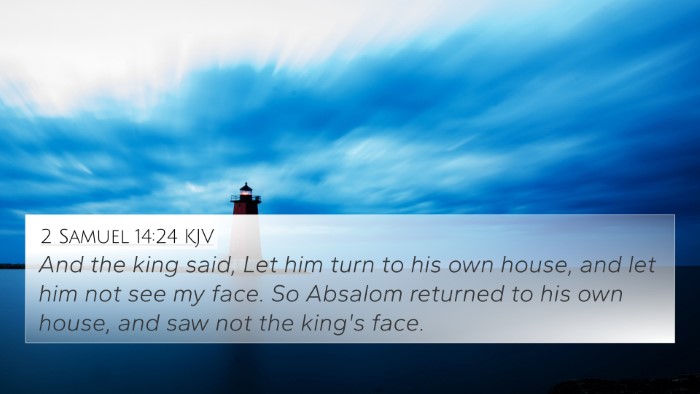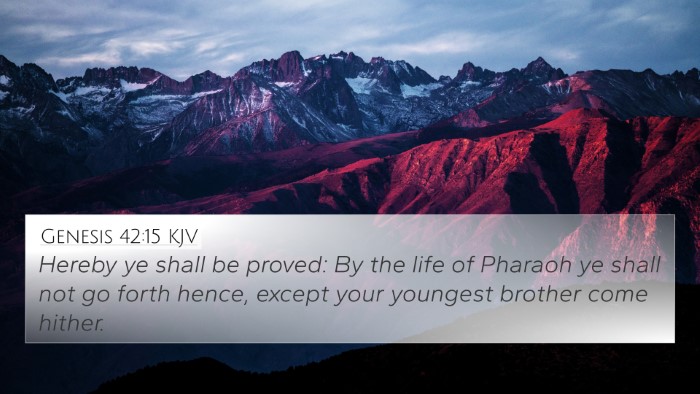Understanding Genesis 43:3
Genesis 43:3 states:
"But Judah spoke to him, saying, 'The man solemnly warned us, saying, "You shall not see my face unless your brother is with you."'
This verse reflects the critical moment in Joseph's story where familial relationships and obligations are brought to the forefront. In this analysis, we will explore its meaning and the interconnections with other biblical texts.
Verse Meaning and Context
In the context of Genesis, this verse is part of the larger narrative where Jacob's sons must return to Egypt to obtain food during a famine. They are reluctant to present Benjamin, Jacob's favored son, due to the prior warning from Joseph, who was unaware to them that he was their brother.
From the perspectives provided in various public domain commentaries:
- Matthew Henry: He emphasizes the importance of family bonds and the lessons learned in trusting God through trials. Henry notes that Judah's statement indicates a shift in responsibility and leadership among the brothers, underscoring Judah's role in ensuring Benjamin's safety.
- Albert Barnes: Barnes highlights the prophetic nature of Joseph's warning as not only a psychological strategy to test his brothers but also as a means to reveal their character and integrity. This moment is pivotal in the overarching theme of reconciliation.
- Adam Clarke: Clarke's commentary points out the emotional gravity of the situation. He suggests that Judah's articulation of the warning shows a deep understanding of the precarious situation they are in, acknowledging the seriousness of their plight and the potential consequences if they failed to fulfill Joseph's conditions.
Cross-References and Thematic Connections
Genesis 43:3 connects with several other scripture passages, illustrating its themes of family dynamics, responsibility, and divine orchestrations. Here are notable cross-references:
- Genesis 37:3-4: The favored status of Joseph and Benjamin is established, setting the stage for jealousy and conflict.
- Genesis 42:19-20: The initial warning by Joseph is reiterated, highlighting the consequences of their actions.
- Exodus 1:8-10: This passage reflects the theme of hardship faced by the Israelites in Egypt, analogous to the struggles faced by Joseph’s brothers.
- Luke 15:30: Relating to the story of the Prodigal Son, where familial love and strife play out, giving a New Testament perspective on familial duty.
- Romans 8:28: A reminder that all things work together for good, paralleling Joseph’s eventual reconciliation with his brothers.
- Hebrews 11:21: The faith of Jacob is also tied into the larger narrative of faith against trials.
- 1 Corinthians 10:13: Reflects on God’s faithfulness amidst temptation, akin to the testing of Joseph's brothers.
- Ephesians 3:20: Connects to the overarching theme of God's providence, much like the unfolding of Joseph's story.
- Genesis 44:14: The climax of acceptance and shame, as they confront their past actions in front of Joseph.
- Colossians 3:13: Similarly stresses forgiveness and the importance of familial bonds.
Thematic Analysis
The themes in Genesis 43:3 resonate through the Bible, reflecting accountability, reconciliation, and the results of choices made within family dynamics. The development of Judah’s character from a place of passive guilt to one of active responsibility highlights a significant theme of growth through adversity.
Inter-Biblical Dialogue
This verse facilitates a dialogue between the Old and New Testaments, showcasing how familial contexts were critical across both eras. The intertwining narratives allow for rich comparative studies, reinforcing the timeless nature of God's teaching on family and trust.
Conclusion
In summary, Genesis 43:3 serves as a crucial turning point in the narrative, illustrating the importance of family bonds and accountability. The comprehensive study of this verse through its connections and thematic implications deepens our understanding of scripture as a cohesive and interconnected narrative.
Further Study
To delve deeper into these themes and the voice of scripture, consider utilizing tools for Bible cross-referencing and engaging methods of scripture study. Understanding the links between biblical texts can enhance one’s insight into both personal and theological applications of these stories.
